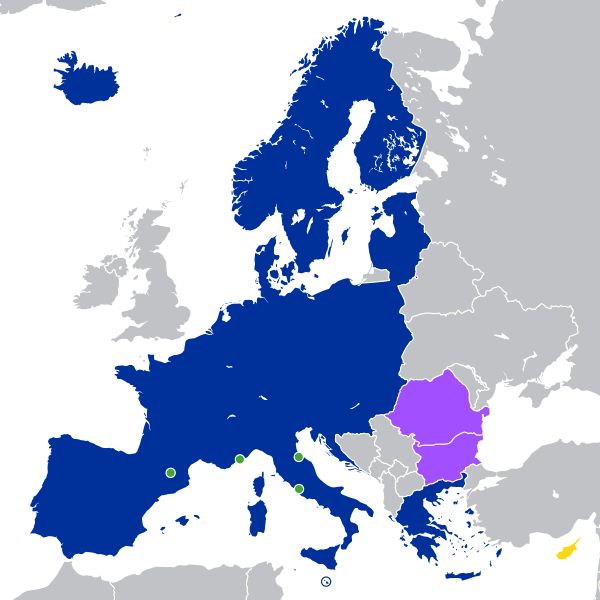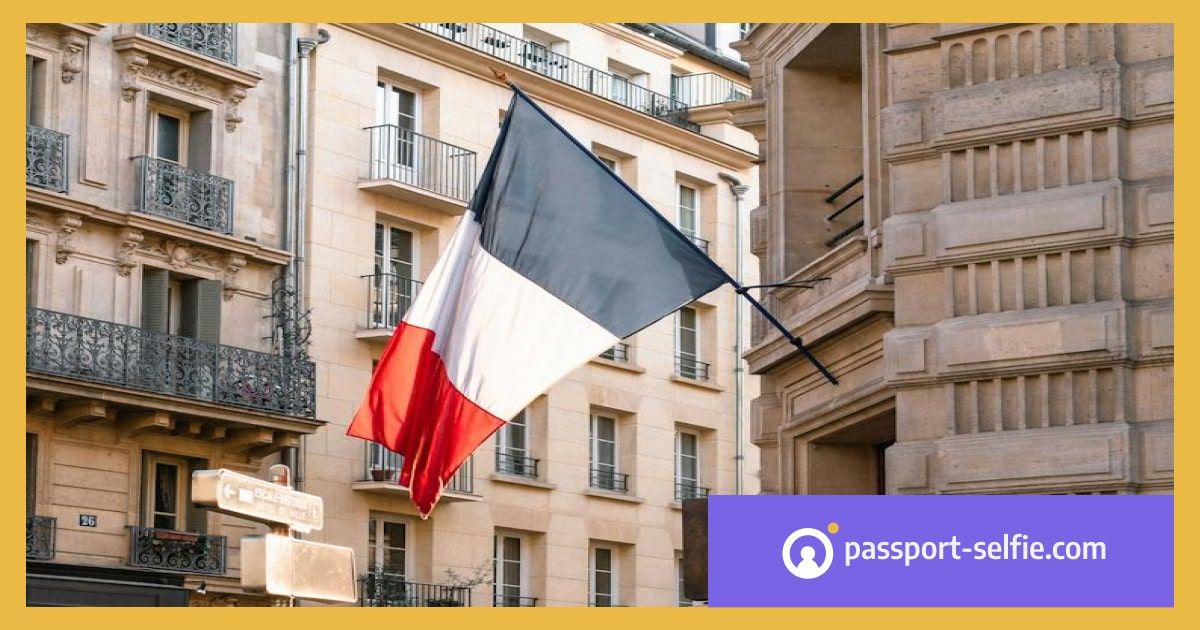Summary
Don't have time to read through this article? We've summarized all the important points for you:
- To visit France for up to 90 days, you need a Schengen visa, which also covers travel to other Schengen countries.
- Apply at the French consulate or an authorized visa center. Ensure you have all required documents.
- For long-term stays beyond 90 days, consider visas such as the Student Visa, Work Visa, Non-Lucrative Visa, Talent Passport, Au Pair Visa, or Working Holiday Visa.
- If you need to stay longer than the visa allows, apply for an extension before your current visa expires, with valid reasons such as medical emergencies or unforeseen personal circumstances.
Heading to France or other European destinations? The Schengen Area lets you explore some of Europe’s best spots. Unsure if you need a Schengen visa or what’s required? Don’t worry, we’ve got all the info you need to make your travel planning as easy as possible.
The Schengen Visa

The Schengen visa gives you freedom to travel between 29 countries in Europe, including France. It’s your ticket to an easygoing European experience, so it is important that you get your visa application right (that is, if you need one!).
Do I need a Schengen Visa?
If you’re a non-EU resident aiming for a short trip to the Schengen Area (up to 90 days in a 180-day span), you’ll need to submit a Schengen Visa application. This applies to tourism, business, or family visits. Some countries have special arrangements with Schengen states, allowing their citizens to avoid the visa for short-term stays.
Check this EU list to see which nationalities need a visa to enter the Schengen area. Note that there are exceptions for certain travelers, including diplomats, military personnel, refugees, and students on school excursions.
Only traveling to one Schengen country? Submit your visa application at the consulate of the country you plan to visit.
Traveling to multiple Schengen nations? Submit your visa application at the consulate of the country where you'll stay the longest.
Traveling across the Schengen area without a primary destination? If you're spending the same number of nights in multiple countries, apply for your visa at the consulate of the country you'll be entering first.
What if my Schengen destination doesn’t have an embassy or consulate in my country? In that case, you may need to apply through the embassy or consulate of a different Schengen country in your region, or through a Visa Application Center (VAC), though this last option might come with additional fees.
Can I cancel my bookings after obtaining a Schengen visa? Yes, you can cancel your bookings once you have your visa, but it's crucial to make sure your new travel plans still align with the visa's conditions. If your main destination changes, inform the consulate that issued your visa, as significant changes might require a new application.
Our Tip: This short-stay visa calculator will help you track how many days you have left in your Schengen stay. It’s a handy tool to ensure you stay within your allowed 90-day limit and avoid overstaying.
General Requirements for your Schengen Visa
Applying for a Schengen Visa requires you to gather a number of documents. Here’s a general checklist:
- Visa Application Form: A fully completed and signed Schengen Visa Application Form.
- Passport: Must be valid for at least three months beyond your planned departure from the Schengen area and issued within the last 10 years.
- Biometric Photos: Two recent passport photos taken within the last three months that meet specific standards, such as size and background. You can easily get a Schengen visa-compliant photo online using our online passport photo maker tool.
- Travel Insurance: Coverage of at least €30,000 for medical emergencies, valid throughout the Schengen area.
- Proof of Accommodation: Hotel bookings, rental agreements, or an invitation letter from a host.
- Proof of Financial Means: Bank statements, sponsorship letters, or a combination of both, showing you can support yourself during your stay..
- Round Trip Reservation: Flight itinerary with entry and exit dates.
- Visa Fee: €90 for adults and €45 for children aged 6-12. For applicants from Armenia, Azerbaijan, and Belarus, the fee is €35, and for applicants from Cabo Verde, it is €67.50 (as of August 2024).
And don’t forget to confirm the specific requirements for the country you are applying to, as additional documents might be needed.
Schengen Visa for France
While the general requirements for a Schengen Visa are similar across all Schengen countries, there are some specific considerations and requirements for France:
- Translation of Documents: If your documents are in a language other than French or English, you may need to have them translated into French.
- For France, you might need to provide more detailed proof of accommodation, such as a confirmed hotel booking or an invitation letter from a host.
- You need to show that you have sufficient funds to cover your stay in France. This can be demonstrated through bank statements, sponsorship letters, or a combination of both.
- Additional Documents: Depending on the purpose of your visit (tourism, business, family visit), you may need additional documents like an invitation letter, business meeting details, or a detailed travel itinerary.
Visa Schengen Application Process for France
- Complete the Visa Application Form: Fill out the form accurately and sign it. You can do this online through the France-Visas portal.
- Schedule an Appointment: Book an appointment at the French Embassy or Consulate in your country.
- Attend the Visa Interview: Bring your documents and attend the interview at the scheduled time.
- Pay the Visa Fee
- Wait for Processing: The processing time can vary, but it generally takes around 15 days.
Our Tip: Avoid last-minute stress! Apply for your visa at least 15 days before your trip, and you can even submit your application up to six months in advance.
Extending Your Visitor Visa in France
Extending a visitor visa (Schengen Visa) in France is generally only possible under exceptional circumstances. This is what you will need to take into account when applying for an extension of your tourist visa:
- Apply Early: You must apply for an extension well before your current visa expires. It’s recommended to start the process at least 15 days before your visa's end date.
- Valid Reasons: Extensions are typically granted for compelling reasons such as medical emergencies, unforeseen personal circumstances, or significant humanitarian grounds. Simply wanting to stay longer for leisure or business won't usually be sufficient.
- Application Process: To apply for an extension, visit the local French prefecture or immigration office. You’ll need to provide supporting documents, such as proof of your reasons for extending your stay, evidence of financial means, and proof of accommodation.
- Required Documents: Commonly required documents include a completed application form, a valid passport, proof of your initial visa, and documents justifying your need for an extension. You may also need to show proof of health insurance coverage for the extended period.
- Decision Timeline: The processing time for an extension can vary, so it's crucial to apply as early as possible. During this time, make sure to stay in touch with the local authorities for any updates.
- Avoid Overstaying: Overstaying your visa without an approved extension can lead to penalties, fines, or future entry bans.
Long-Stay Visas - Visa de Long Séjour
Thinking of spending more than 90 days in France for reasons beyond tourism? A Schengen visa isn’t enough for long-term stays.
Here are some popular visa options for extending your time in France:
- Student Visa: If you're planning to study or conduct research in France, you'll need a student visa. You must show proof of enrollment at a French educational institution and have sufficient funds to support yourself.
- Work Visa: For those who have secured a job in France, a work visa is required. This involves having a valid work contract and obtaining authorization from the French Ministry of Labor.
- Non-Lucrative Visa: Ideal for those who want to live in France without working. You’ll need to prove you have enough financial resources to cover your stay.
- Talent Passport: For highly skilled professionals, researchers, artists, and entrepreneurs. This visa requires proof of your qualifications and a job offer or project in France.
- Au Pair Visa: If you're looking to live with a French family and help with childcare in exchange for room and board, an au pair visa is for you. You'll need an au pair agreement and proof of basic French language skills.
- Working Holiday Visa: Available for young people from certain countries who want to work and travel in France for up to a year. You'll need to provide proof of financial means and health insurance.
For more information, you can visit France-Visas, the official website for visa applications to France.
Our Tip: You’ll likely need visa photos for your application, which must meet specific size and format requirements. Use our Passport Photo App to take these photos yourself, ensuring they fit all necessary parameters. This can save you both time and money!
Using Your Schengen Visa for Other Countries
A French Schengen visa opens up other travel possibilities. Here’s how you can use it to explore other countries:
- Travel Within the Schengen Area: Your French Schengen visa allows you to travel freely throughout the entire Schengen Area. This means you can visit other popular destinations like Italy, Spain, and Germany without needing additional visas. Just remember that the total stay in the Schengen Area cannot exceed 90 days within any 180-day period.
- Non-Schengen Countries: With a French Schengen visa, you can also visit a few non-Schengen countries that are close to or within the Schengen Zone and explore microstates like Monaco, Andorra, and Vatican City. However, you might need to check specific entry requirements for each of these destinations.
- Entry Requirements: While traveling to other Schengen countries, ensure you comply with local entry rules and regulations. Although your visa allows you to move within the Schengen Area, each country may have its own entry conditions, such as registration or additional documentation.
- Duration and Limits: Be mindful of your visa’s validity period and the total number of days you spend within the Schengen Zone. Overstaying your visa can lead to penalties or difficulties with future travel, so keep track of your travel days and stay within the allowed period.
Also it is important to note that there’s a common error in thinking that the United Kingdom is part of the Schengen Area. However, the UK has never been a member of the Schengen Agreement, and Brexit has further cemented this separation. Therefore, if you plan to include the UK in your travel itinerary, you might require a separate visa.
Conclusion
Getting a Schengen visa for France is easy when you know the steps and have your paperwork sorted. With the right preparation, the application process can be smooth and stress-free. Use our online passport photo app to simplify part of the process, allowing you to focus on planning your French getaway. Enjoy your travels and make the most of your time in France!
Author: Valeria Calpanchay
Valeria Calpanchay is a seasoned globetrotter with a deep passion for digital product design, marketing, writing, and online media. Her expertise allows her to provide valuable guides for passport photos on our website, delighting our users with her insights.






